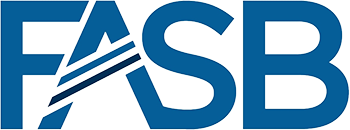Why Is the FASB Issuing This Accounting Standards Update (Update)?
The Board is issuing this Update as part of its initiative to reduce complexity in accounting standards (the Simplification Initiative). The objective of the Simplification Initiative is to identify, evaluate, and improve areas of generally accepted accounting principles (GAAP) for which cost and complexity can be reduced while maintaining or improving the usefulness of the information provided to users of financial statements. The specific areas of potential simplification in this Update were submitted by stakeholders as part of the Simplification Initiative.
Who Is Affected by the Amendments in This Update?
The amendments in this Update affect entities within the scope of Topic 740, Income Taxes.
What Are the Main Provisions?
The amendments in this Update simplify the accounting for income taxes by removing the following exceptions:
- Exception to the incremental approach for intraperiod tax allocation when there is a loss from continuing operations and income or a gain from other items (for example, discontinued operations or other comprehensive income)
- Exception to the requirement to recognize a deferred tax liability for equity method investments when a foreign subsidiary becomes an equity method investment
- Exception to the ability not to recognize a deferred tax liability for a foreign subsidiary when a foreign equity method investment becomes a subsidiary
- Exception to the general methodology for calculating income taxes in an interim period when a year-to-date loss exceeds the anticipated loss for the year.
The amendments in this Update also simplify the accounting for income taxes by doing the following:
- Requiring that an entity recognize a franchise tax (or similar tax) that is partially based on income as an income-based tax and account for any incremental amount incurred as a non-income-based tax.
- Requiring that an entity evaluate when a step up in the tax basis of goodwill should be considered part of the business combination in which the book goodwill was originally recognized and when it should be considered a separate transaction.
- Specifying that an entity is not required to allocate the consolidated amount of current and deferred tax expense to a legal entity that is not subject to tax in its separate financial statements. However, an entity may elect to do so (on an entity-by-entity basis) for a legal entity that is both not subject to tax and disregarded by the taxing authority.
- Requiring that an entity reflect the effect of an enacted change in tax laws or rates in the annual effective tax rate computation in the interim period that includes the enactment date.
- Making minor Codification improvements for income taxes related to employee stock ownership plans and investments in qualified affordable housing projects accounted for using the equity method.
How Do the Main Provisions Differ from Current Generally Accepted Accounting Principles (GAAP) and Why Are They an Improvement?
The amendments in this Update simplify the accounting for income taxes by removing certain exceptions to the general principles in Topic 740. The amendments also improve consistent application of and simplify GAAP for other areas of Topic 740 by clarifying and amending existing guidance.
When Will the Amendments Be Effective and What Are the Transition Requirements?
For public business entities, the amendments in this Update are effective for fiscal years, and interim periods within those fiscal years, beginning after December 15, 2020. For all other entities, the amendments are effective for fiscal years beginning after December 15, 2021, and interim periods within fiscal years beginning after December 15, 2022. Early adoption of the amendments is permitted, including adoption in any interim period for (1) public business entities for periods for which financial statements have not yet been issued and (2) all other entities for periods for which financial statements have not yet been made available for issuance. An entity that elects to early adopt the amendments in an interim period should reflect any adjustments as of the beginning of the annual period that includes that interim period. Additionally, an entity that elects early adoption must adopt all the amendments in the same period.
The amendments in this Update related to separate financial statements of legal entities that are not subject to tax should be applied on a retrospective basis for all periods presented. The amendments related to changes in ownership of foreign equity method investments or foreign subsidiaries should be applied on a modified retrospective basis through a cumulative-effect adjustment to retained earnings as of the beginning of the fiscal year of adoption. The amendments related to franchise taxes that are partially based on income should be applied on either a retrospective basis for all periods presented or a modified retrospective basis through a cumulative-effect adjustment to retained earnings as of the beginning of the fiscal year of adoption. All other amendments should be applied on a prospective basis.













